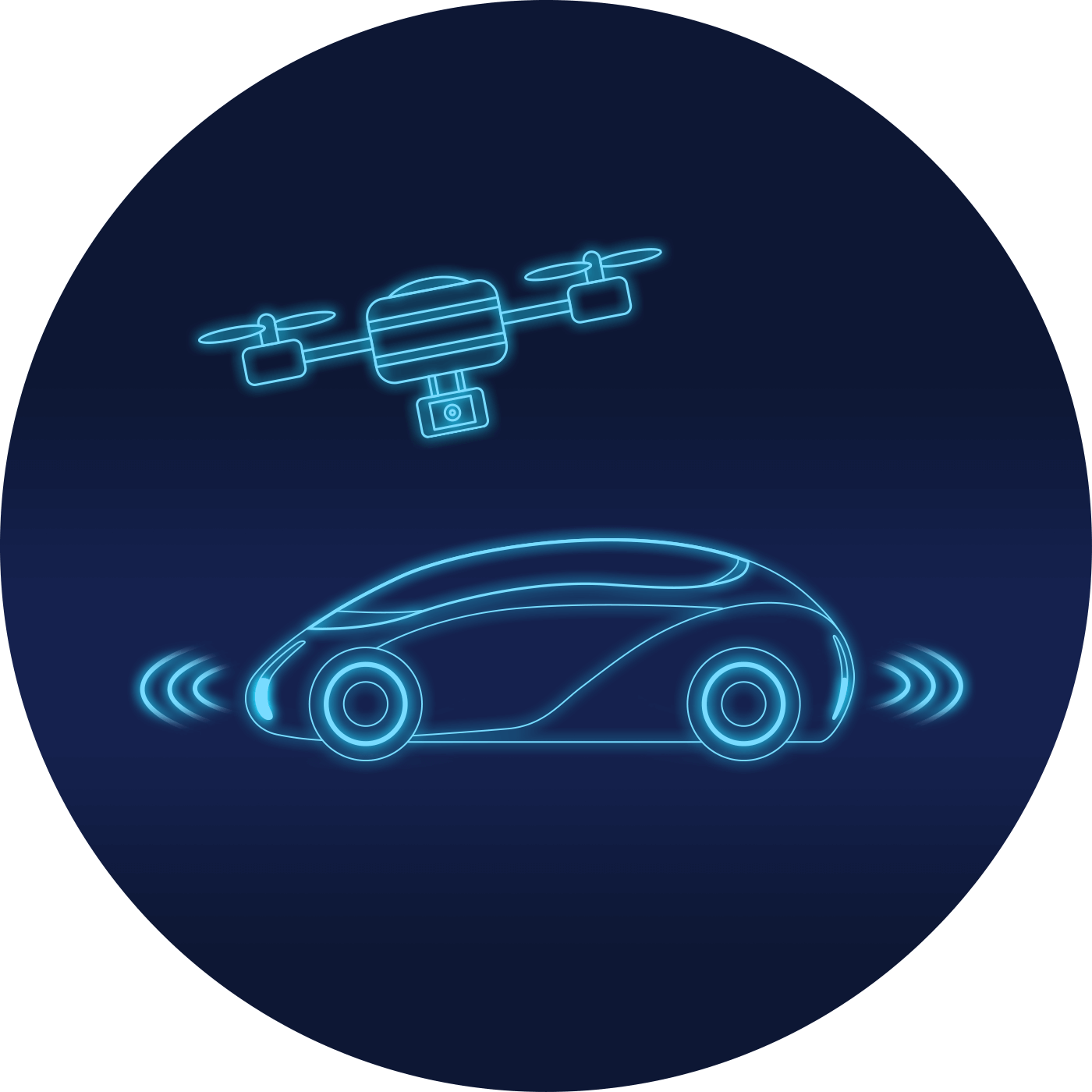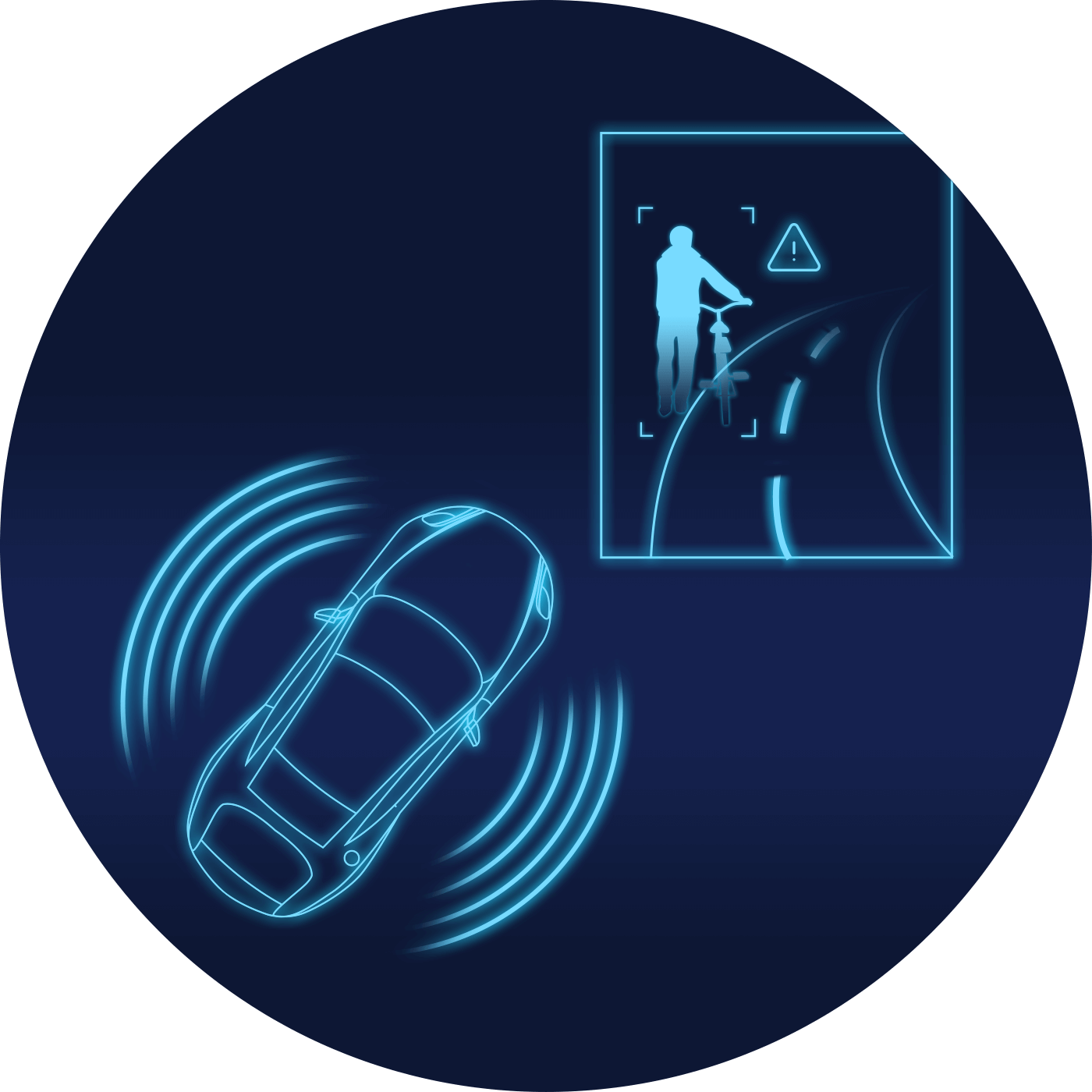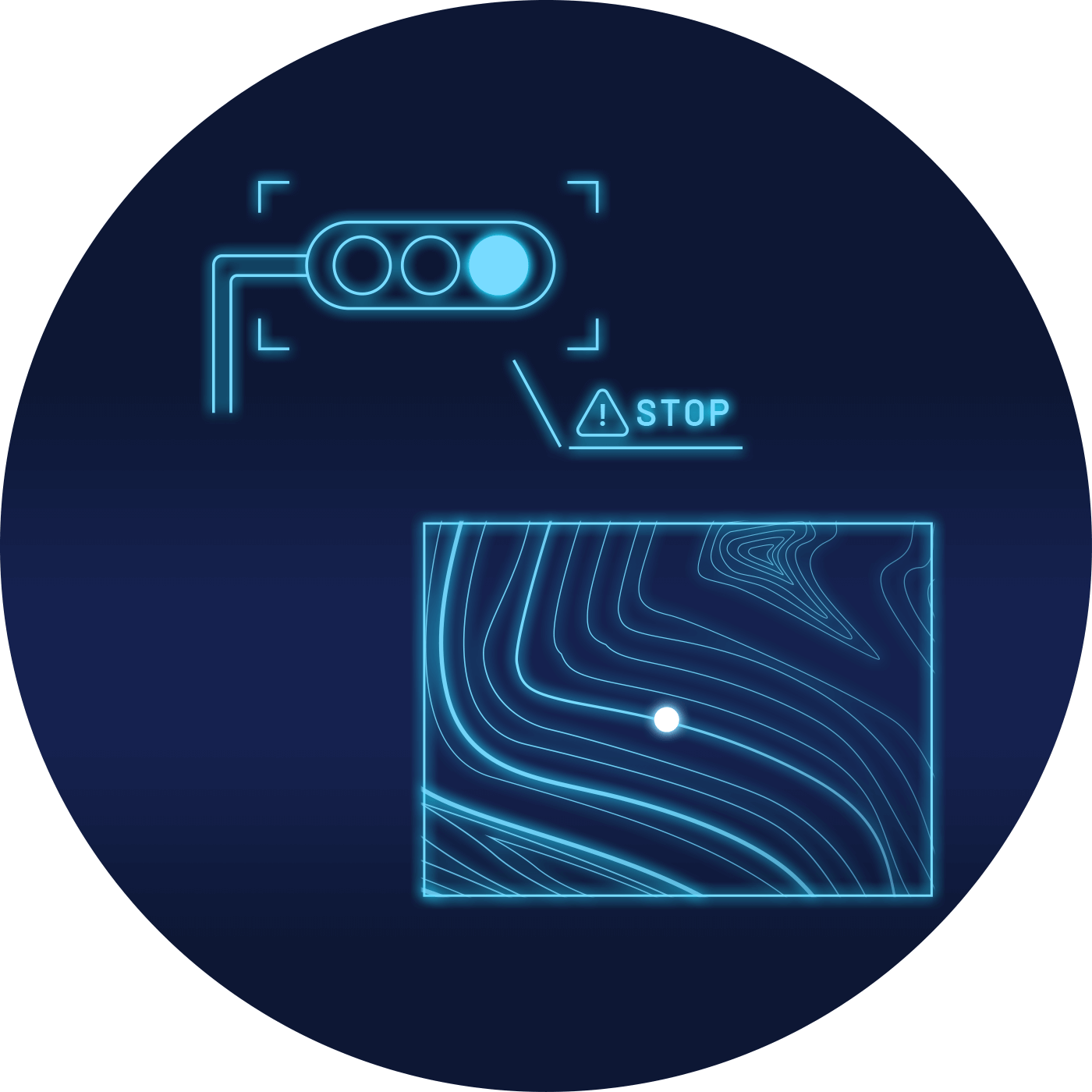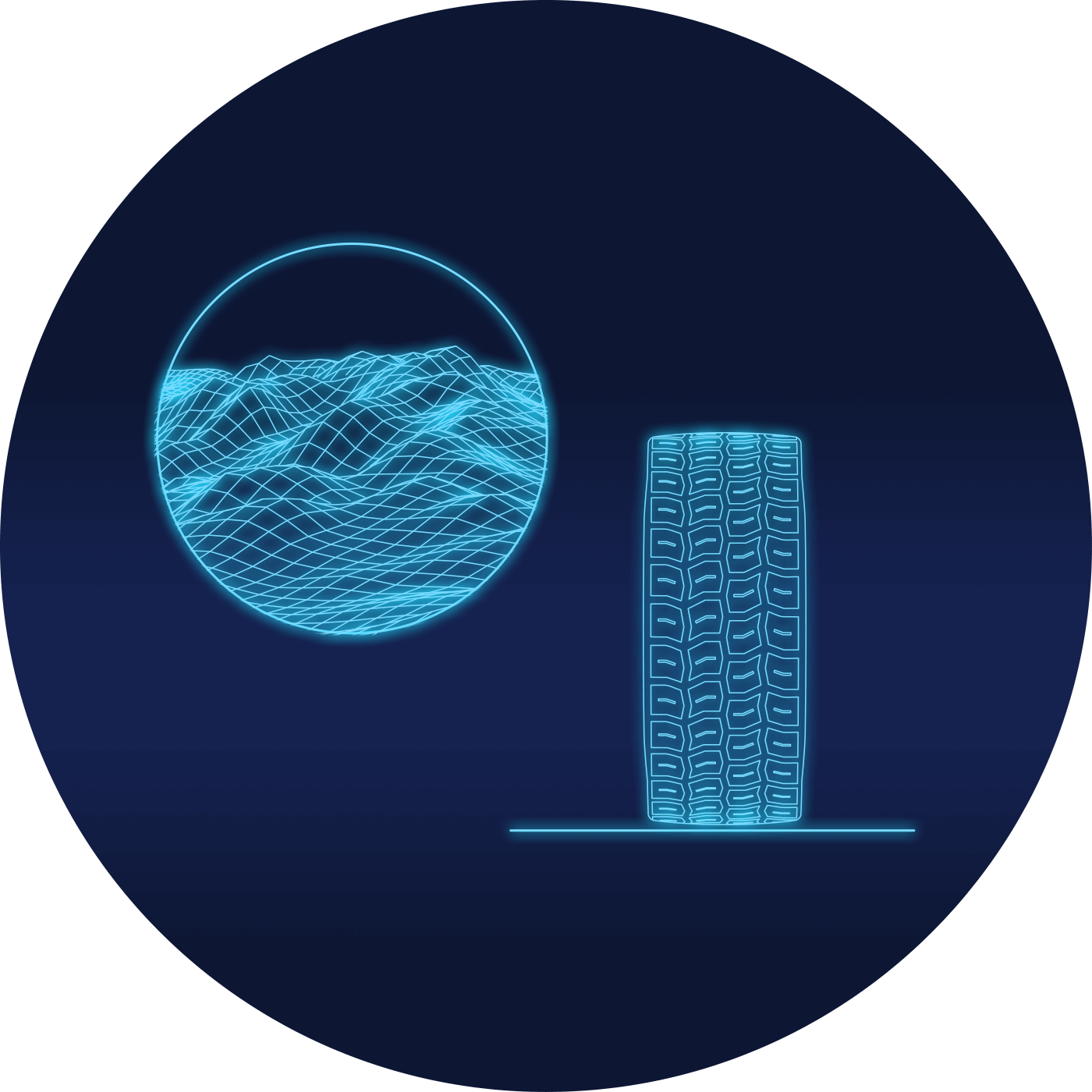GREETING
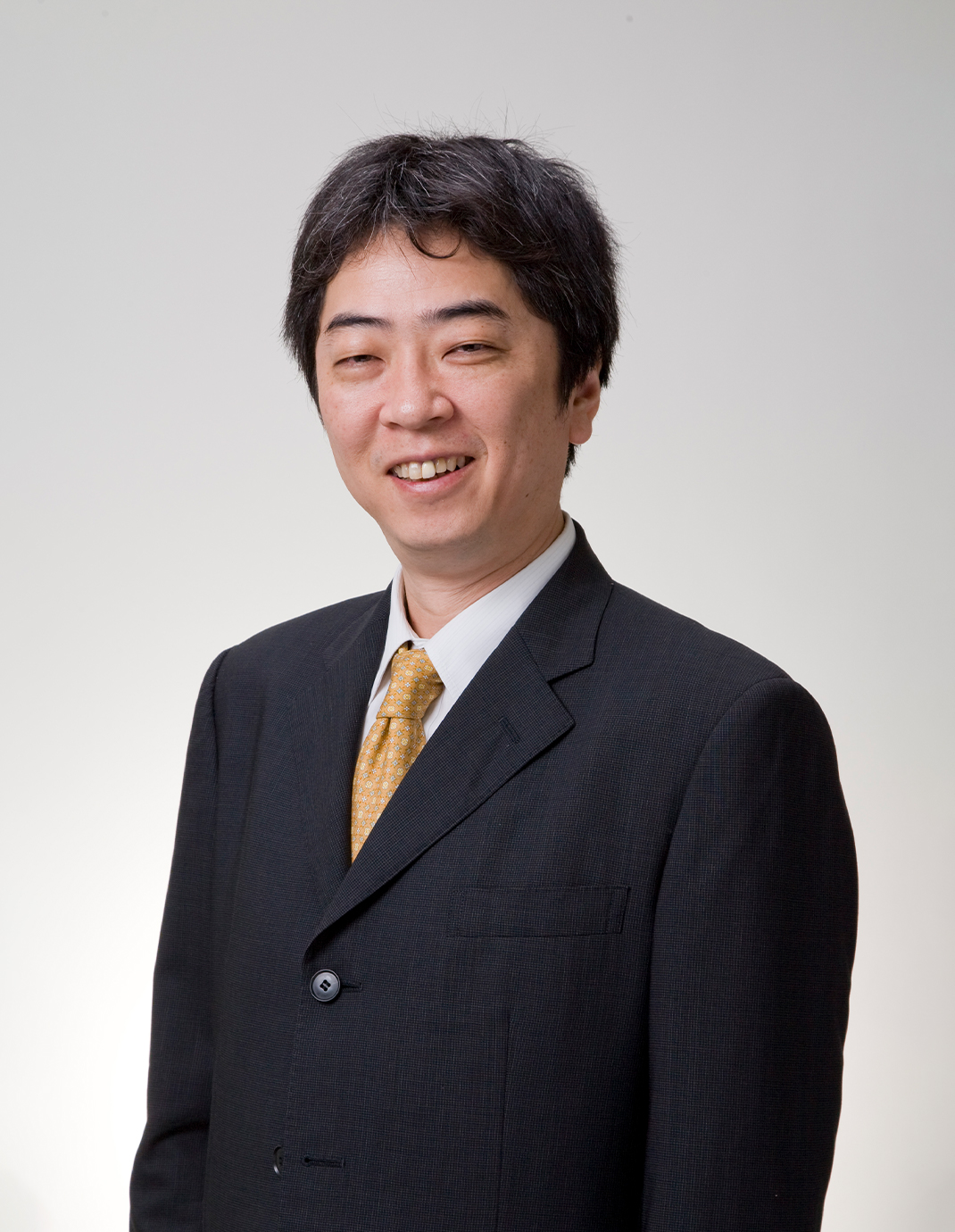
Kanazawa University started to develop technology to realize autonomous driving of automobiles in urban areas since 1998. Autonomous driving requires the development of a wide range of technologies, from the creation and maintenance of high-precision maps for accurately representing the driving space, to the perception and decision-making technologies for enabling autonomous maneuvers. Therefore, we have comprehensively studied a series of elemental technologies required for autonomous vehicles and been researching and developing our own autonomous driving system from an academic perspective. In collaboration with related companies, we have made significant and prominent achievements including the first public road driving demonstration by a Japanese university on a public road since February 2015. Based on these efforts, in April 2015, the Autonomous Vehicle Research Unit was established within the Institute for Frontier Science Initiative which was established with the aim at further strengthening Kanazawa University's superior and advancing interdisciplinary researches.
The Autonomous Vehicle Research Unit has been making pioneering efforts in Japan to further advance autonomous driving technologies to utilize autonomous driving systems as a means of transportation in depopulated areas. Therefore, the unit has attracted a great deal of attention including many reports from various media. Based on this long line of success, the Advanced Mobility Research Institute (AD-MORE) was established as a university-wide organization of Kanazawa University in April 2021. The Advanced Mobility Research Institute will promote sophistication of mobility with the core technology of Kanazawa university’s superior autonomous driving technology. In addition, we aim to create a new future society by arranging social issues and supplying additional benefits to advanced mobilities. We believe that collaboration among industry, academia, government and financial institutions related to advanced mobility is indispensable to realize this goal. The Advanced Mobility Research Institute will conduct researches and developments in close cooperation with these stakeholders and work towards the social implementation of these technologies. Thus, we look forward to your continued cooperation and support in the future.
Greetings from the Director of Advanced Mobility Research InstituteTachiya Hiroshi
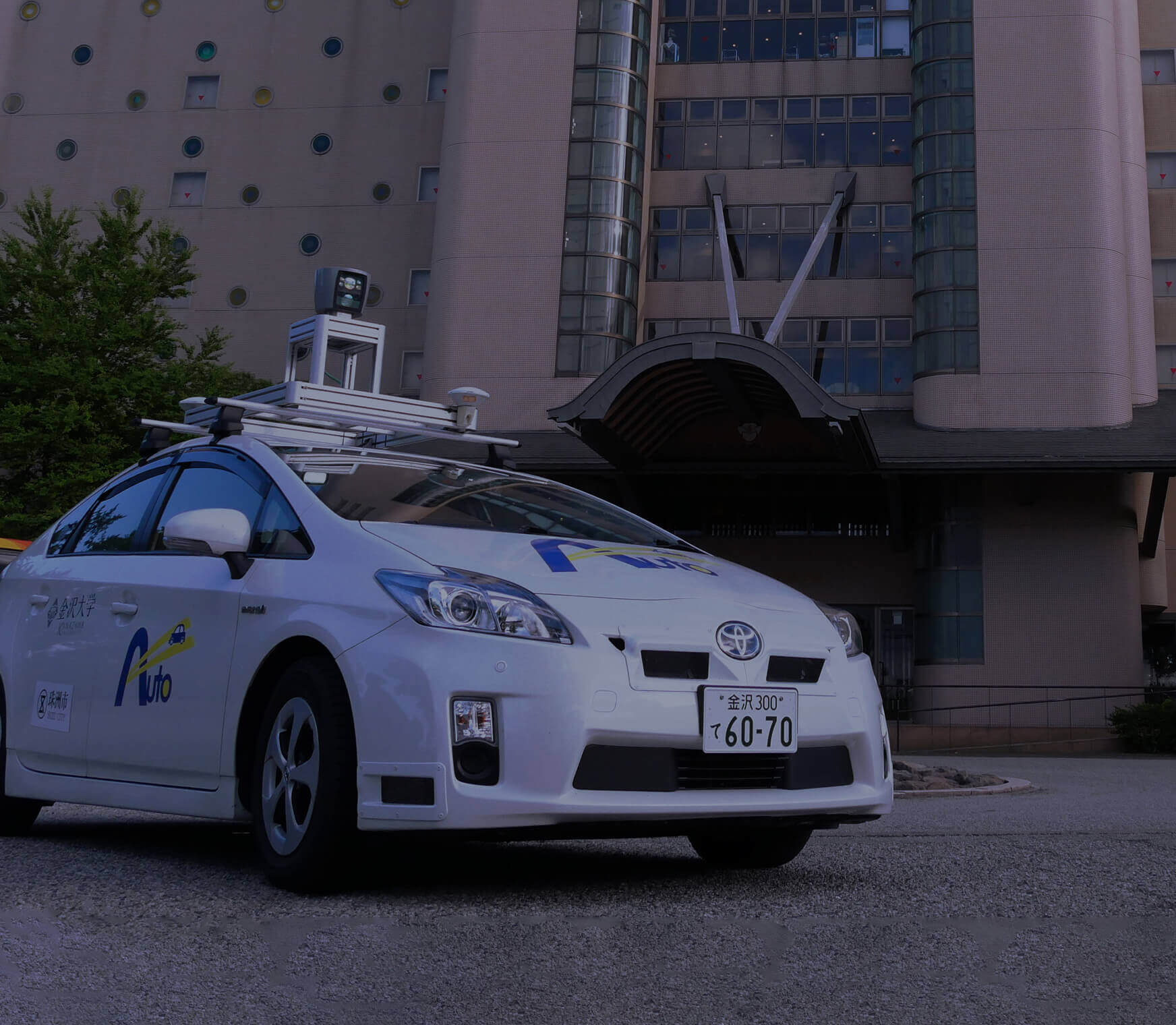
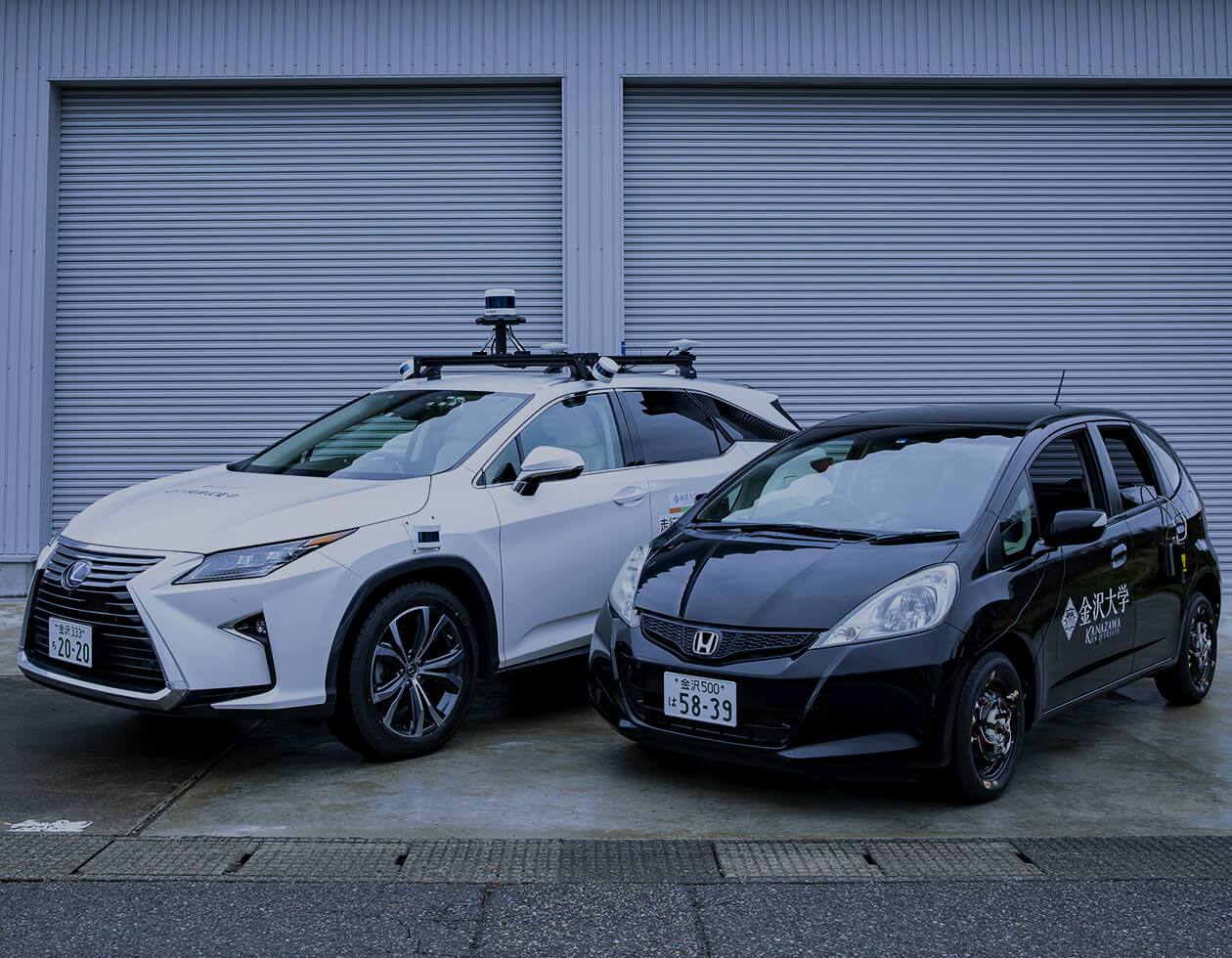
ABOUT US
Explore Future Mobility
Aiming to realize so-called autonomous driving of “door-to-door” in urban areas, we have been conducting comprehensive research from an academic perspective on the technologies required for autonomous driving. The research area ranges from basic research such as map generation and maintenance required for autonomous driving to research on recognition, decision-making, and control, which are the core technologies of autonomous driving. We also implement a wide range of technologies required for autonomous driving such as research on high-speed computation using large-scale integrated circuits (VLSI), research on safe control of vehicles even on slippery roads such as wet roads and snowy roads, etc.
To develop driving intelligence to enable autonomous driving, it is essential to install equipment such as in-vehicle sensors and computers to mimic the actions of drivers, such as recognition, decision-making , and control. High-precision maps are also required for the realization of more natural autonomous driving. For this reason, the key is using artificial intelligence technologies to handle advanced cognitive and decision-making functions, along with probabilistic robotics to analyze situations robustly in consideration of sensing errors. Since around 1998, we have been conducting research on technologies for driving in urban areas by fusing massive amounts of sensor data for robust recognition and decision-making complicated driving environments, and for the auto-generation of high-precision maps. We have also been researching VLSI algorithms for high-speed advanced image processing.
To enable stable autonomous driving even on slippery roads that make vehicles unstable, we need technologies capable of detecting road surface conditions and enabling proper reactions. Hence, we have focused on tires, the only contact point between the car and the road surface. We have been researching a system to measure the coefficient of friction of the road surface based on tire sidewall and wheel information. This makes it possible to measure the road surface friction coefficient for actual vehicles using tires commonly available in the market. The research results are very valuable, and the technology is expected to be applied not only to autonomous driving in the future, but also to contribute to further developments in existing advanced driver assistance systems such as Anti-lock Braking System(ABS) and Automatic Emergency Braking system(AEB).
Some of these research results were put into practice in the first public road driving demonstration experiment in an urban area, which has been conducted by Kanazawa University since the beginning of 2015. Autonomous driving is being tested in a wide range of traffic environments, from rural areas to metropolitan ones, and from normal to extreme weather in places such as Ishikawa, Hokkaido, and Tokyo. These efforts have been covered by the media in Japan and overseas and has led to further support for a large number of nationwide collaborative research studies among private firms, universities, and governmental offices. Through all of these efforts, we at the Advanced Mobility Research Institute aim to contribute to the research and development of autonomous driving technologies in Japan from an academic perspective.
Research
departmentResearch
department
ACCESSACCESS
Kanazawa University Advanced Mobility Research Institute
Kakumamachi, Kanazawa-shi, Ishikawa-ken 920-1164
Natural Science and Technology Hall 2, Hall 3
Kanazawa University satellite office at Haneda Airport
Haneda Airport, 5F Haneda Airport Passenger Terminal 1 Market Place, 3-3-2, Ota City, Tokyo 144-0041
Regus Express Tokyo, Haneda Airport Terminal 1 (Tokyo International Air Terminal)















